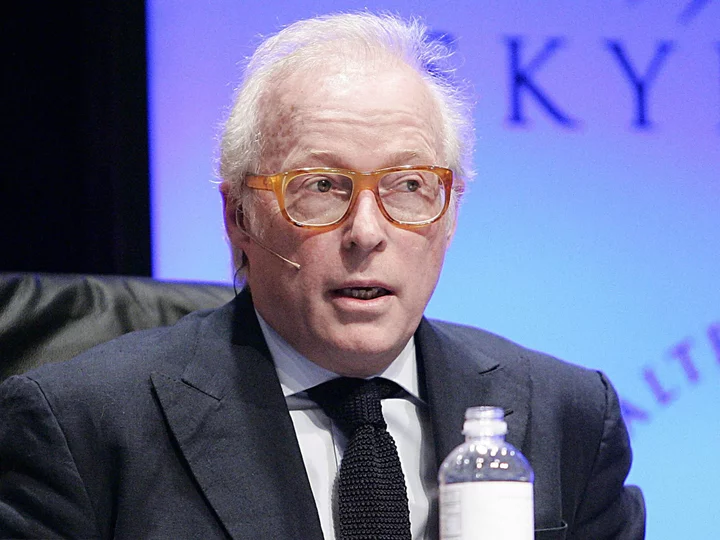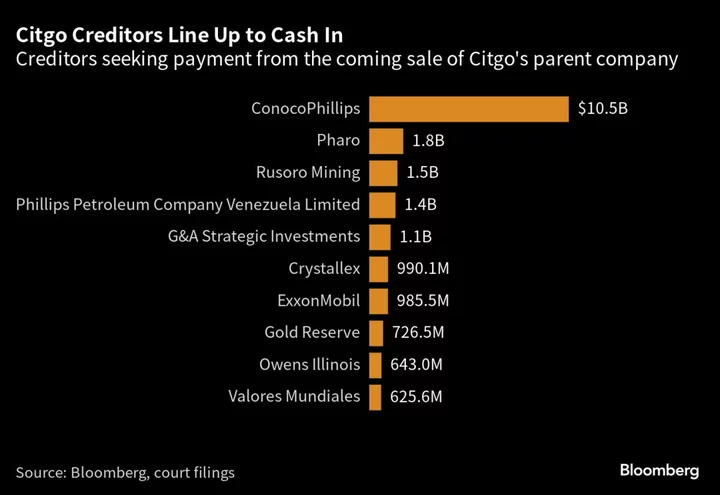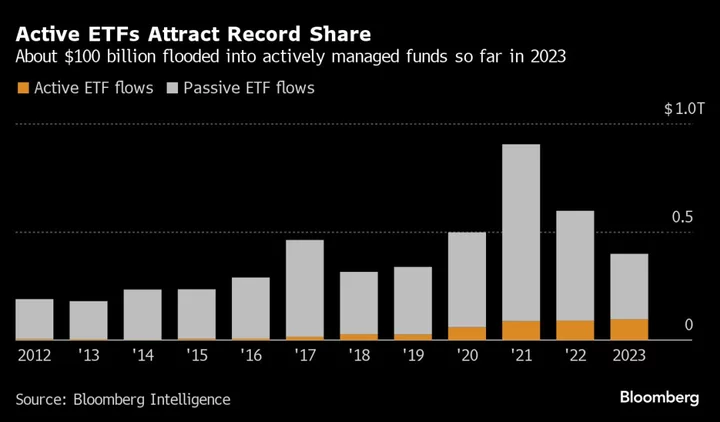For months, two giant hedge funds discussed a partnership that would be unprecedented for the industry.
Schonfeld Strategic Advisors would get a pot of stable money to replace investors who were defecting after 18 months of lackluster returns. Millennium Management would get access to legions of traders without having to pay up amid escalating bidding wars for talent.
But as the talks progressed, Schonfeld executives felt the proposed arrangement looked more like a takeover, even though Millennium had assured them they’d maintain their independence.
Early on, Izzy Englander’s Millennium wanted Schonfeld to manage cash exclusively for it, forcing a rival that oversees about $11.7 billion to return all of its clients’ capital. That became a sticking point in negotiations that ended with Schonfeld walking away from a deal this week after a more attractive alternative emerged.
This account is based on conversations with multiple people familiar with how events unfolded, who asked not to be identified discussing private details. Representatives for both firms declined to comment.
Conversations began in late summer, after Schonfeld Chief Investment Officer Ryan Tolkin assessed his firm’s financial health and incoming redemption requests.
Clients had flexible terms that allowed them to pull their cash on a monthly basis, and withdrawals were rapidly piling up. Fund performance was dismal and expenses mounted. Schonfeld was coming off a costly hiring spree in a competitive market for talent. Expenses tied to investment personnel are often passed on to clients, and after some of them fled, those who remained faced the prospect of shouldering a heavier burden.
One thing was certain: Schonfeld needed cash.
So Tolkin approached Millennium executives in pursuit of a strategic partnership. The conversations involved senior managers at both firms, including Millennium’s Englander, co-CIO Justin Gmelich and Chief Operating Officer Ajay Nagpal, along with Tolkin and Schonfeld COO Andrew Fishman. Steven Schonfeld, a typically hands-off founder who tends to leave day-to-day decisions to Tolkin, was also actively involved in the discussions.
At one point, Englander, Tolkin and Gmelich, were spotted having lunch at The Grill, a popular New York steakhouse near Millennium’s Park Avenue headquarters. The latter two had overlapped at Goldman Sachs Group Inc. more than a decade ago, when Tolkin was a credit trader and Gmelich ran that business.
Early in the talks, it became clear that Millennium, with $62 billion of assets, wanted access to all of Schonfeld’s capacity, asking that it sever ties with clients.
Schonfeld would start out with billions of dollars from Millennium — a total that could grow over time — while remaining independent. It’s common for Millennium to request exclusivity, and it has arrangements with WorldQuant, Delta Global Management and Kedalion Capital Management. Schonfeld was open to the idea.
Another option was having Millennium invest some cash in its smaller rival, allowing its existing clients to stay, but Englander’s firm would reserve access to all future potential capacity at Schonfeld.
The saga highlights how things can quickly sour for multistrategy hedge funds and helps to explain why many of them have been locking up client cash for much longer periods.
While outflows can cripple any hedge fund, multistrats are particularly vulnerable because of their high cost structure and reliance on pass-through fees to keep expanding. They need to hold on to assets or continuously grow them. Any reversal could snowball into a crisis.
The potential tie-up between Millennium and Schonfeld captivated the industry, prompting speculation that it would be the first sign of consolidation among large so-called pod shops, which have teams that wager on a variety of markets. The two firms previously held unsuccessful deal talks in 2020, after Schonfeld posted double-digit losses at the onset of the Covid-19 pandemic.
Culture Clash
After months of back and forth this time around, Schonfeld executives began to worry that having Millennium as its sole source of capital would take away their autonomy and make it harder to preserve their firm’s culture.
While Millennium is known to be more rigid, Schonfeld touts a culture of collaboration and flexibility.
Schonfeld will work with struggling portfolio managers to help them recover from a drawdown. At Millennium, portfolio managers have tight risk controls: They’re often dismissed when losses exceed prescribed limits. At a recent conference, Englander credited the strictures as a reason for Millennium’s long-term success. His firm has generated annualized returns of 14% since inception.
So Schonfeld started working on an alternative plan last month, holding fundraising discussions with other institutional investors, including Abu Dhabi Investment Authority, GIC Pte and Blackstone Inc., Insider reported last month.
By this week, Schonfeld had gathered as much as $3 billion in verbal commitments, in a fundraising effort spearheaded by Fishman. It remains in advanced talks to secure that capital. This time, learning from its earlier mistakes, the firm is locking up the cash for three years. It still expects more client withdrawals by January.
About an hour after US markets closed on Tuesday — and just two days before a redemption deadline for investors — Steven Schonfeld called Englander to tell his fellow billionaire that the deal was off.
Millennium, which thought a deal was close to being finalized, was caught by surprise.
Melkman Departs
But Schonfeld still needed to cut costs.
On Wednesday, the firm began notifying staff that 15% of its 1,000-person workforce would be dismissed. The vast majority of those affected had non-investing roles, and about 10 were money managers.
Pod shops need to optimize the ratio of money-managing talent to non-investing personnel. Schonfeld’s balance was off-kilter, and the cuts would improve that ratio.
Portfolio manager Ben Melkman, who had ditched plans to start his own firm in order to join Schonfeld, was the most high-profile departure. The firm wanted to lower its concentration risk, and Melkman didn’t want to curtail his exposure, so the two decided to part ways.
On Thursday, Schonfeld employees gathered to hear from their bosses at a firmwide town hall.
It had been a difficult day, but the job cuts were over — at least for now — Schonfeld managers told the staff.
--With assistance from Katherine Burton.









